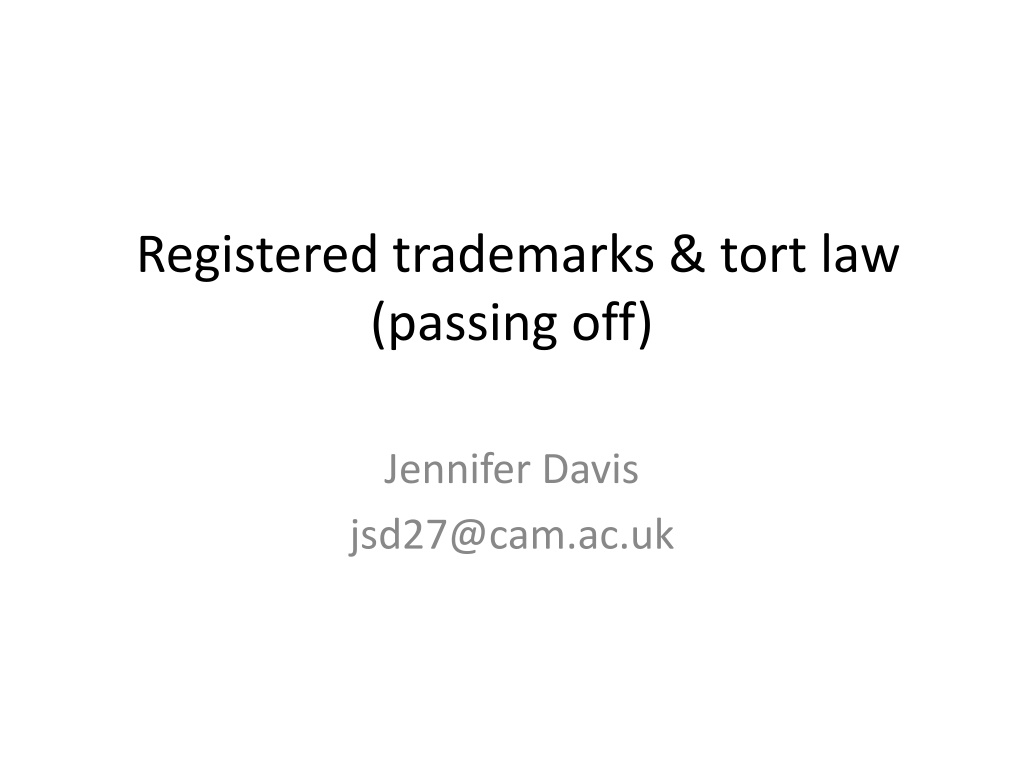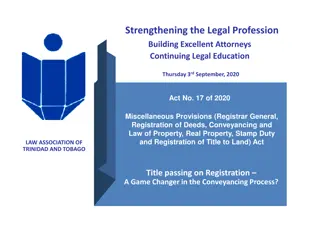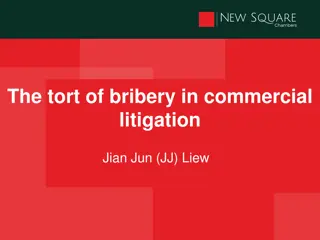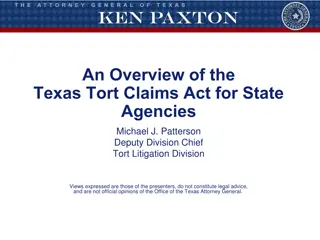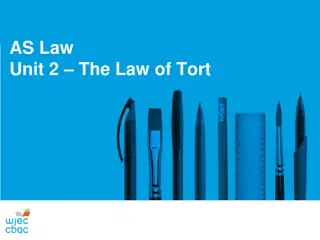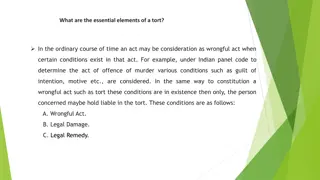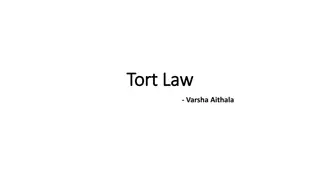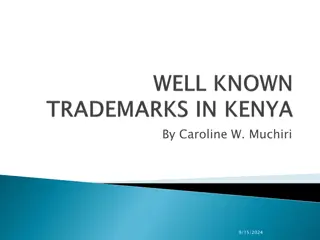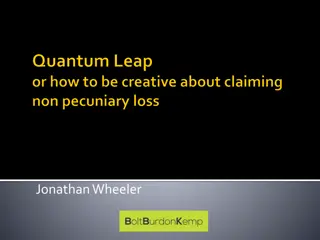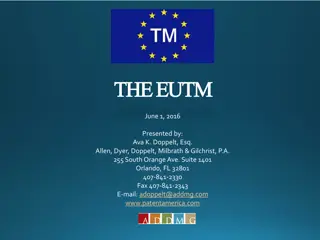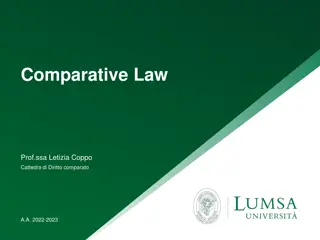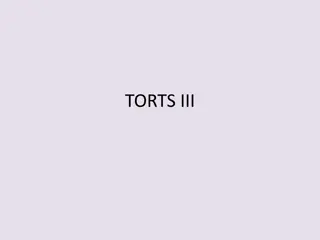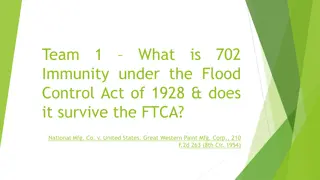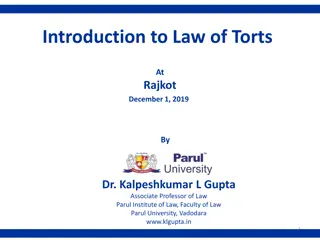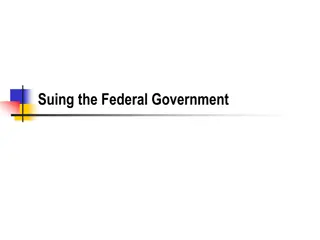Understanding Registered Trademarks and Passing Off in Tort Law
Explore the concepts of passing off and unfair competition in the context of registered trademarks and tort law. Learn about the elements of passing off, including goodwill and misrepresentation, with British case examples illustrating the application of these legal principles. Delve into the nuances of protecting goodwill, identifying misrepresentation, and addressing issues such as false endorsement and supermarket lookalikes. Gain insights into the extended form of passing off through relevant cases.
Download Presentation

Please find below an Image/Link to download the presentation.
The content on the website is provided AS IS for your information and personal use only. It may not be sold, licensed, or shared on other websites without obtaining consent from the author. Download presentation by click this link. If you encounter any issues during the download, it is possible that the publisher has removed the file from their server.
E N D
Presentation Transcript
Registered trademarks & tort law (passing off) Jennifer Davis jsd27@cam.ac.uk
Passing Off and Unfair Competition A British bias against regulating competition Erven Warnink BV v J Townend & Sons (Hull) Ltd [1979] AC 731 ( Advocaat ) The law is applied on a case by case basis Reckitt & Coleman Products Ltd. v Borden Inc [1990] ( Jif Lemon ) No apparent remedy against misappropriation
The elements of passing off 1. Goodwill 2. A misrepresentation 3. Damage (or in a quia timet action, the likelihood of damage)
1. goodwill It is: the attractive force that brings in custom (The Commissioners of Inland Revenue v Muller & Co s Margarine [1901] AC 217) It is distinguished on the market by a distinctive sign/and or get-up It is alienable only with the underlying business It is not the same a reputation and it is local (Starbucks (HK) Ltd v BSB [2015] UKSC 31)
2. A misrepresentation Not all are actionable: it must damage the claimant s goodwill (Phones 4U Ltd v Phone4u.co.uk [2007] RPC 5) The test for confusion is empirical. Query if it differs from the test under TMD (Marks & Spencer Plc v Interflora [2012] EWCA Civ 1501) The type of misrepresentation recognised by the courts is open ended
A misrepresentation as to quality: Spalding v Gamage [1915] 85 LJ.Ch. 499HL
Supermarket lookalikes: United Biscuits v Asda Stores [1997] RPC 513
A trade connection (eg: false endorsement/ image rights?): Fenty v Arcadia Group (t/a Topshop) [2015] EWC Civ 3
The extended form of passing off: Taittinger v Allbev Ltd [1992] FSR 647 ( elderflower champagne )
The extended form of passing off: Diageo v Intercontinental Brands Ltd [2010] EWCA Civ 920
The extended form of passing off: Chocosuisse v Cadbury [1991] RPC 826
3. Damage Lost sales Lost opportunity to expand into other fields (Lego Systems v Lego M. Lemestich Ltd. [1983] FSR 155 HC) Damage by association (Annabel s (Berkley Square) v G. Schock (t/a Annabel s Escort Agency [1972] RPC 261 Dilution & misappropriation? ( Elderflower Champagne )
Passing off and registered trade marks: overlap and divergence 1. A greater penumbra of protection with passing off 2. Steps in if the registered trade mark is found invalid or revoked
1. A greater penumbra of protection Penguin/Puffin
Preventing a registration because of prior right CTReg at8(4): Tilda v OHIM (Case T-136/14) GC 30/9/2015
Ukulele Orchestra of GB v Clausen (t/a UK Ukulele Orchestra [2015] EWHC 1772
1880-2015 Passing off yesterday: Passing off today:
